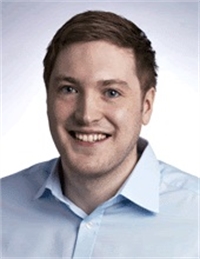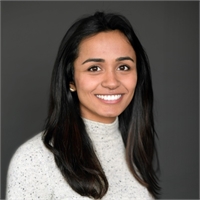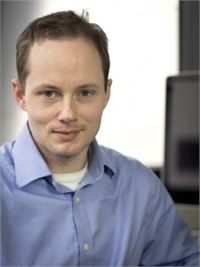Latest Past Events
Physics-Based Machine Learning for Fiber-Optic Communication Systems
Dr. Christian Häger Duke UniversityRapid improvements in machine learning over the past decade are beginning to have far-reaching effects. In this work, we propose a new machine-learning approach for fiber-optic systems in which signal propagation is governed by the nonlinear Schrödinger equation (NLSE). Our main idea is to exploit the fact that the popular split-step method for numerically solving the NLSE has essentially the same functional form as a “deep” multi-layer neural network; in both cases, one alternates linear steps and pointwise nonlinearities. We demonstrate that this connection allows for a principled machine-learning approach by appropriately parameterizing the split-step method and viewing the linear steps as general linear functions, similar to the weight matrices in a neural network. The resulting physics-based machine-learning model has several key advantages compared to conventional “black-box” function approximators. For example, it allows us to easily examine and interpret the learned solutions in order to understand why they perform well.Christian Häger is a researcher in the Communication Systems research group. He received the Dipl.-Ing. degree (M.Sc. equivalent) in electrical engineering from Ulm University, Germany, in 2011 and his Ph.D. degree in communication theory from Chalmers University of Technology, Sweden, in 2016. From 2016 until 2019, he was a postdoctoral researcher at the Department of Electrical and Computer Engineering at Duke University, USA. Since 2017, he is a postdoctoral researcher at the Department of Electrical Engineering at Chalmers University of Technology. His research interests include modern coding theory, fiber-optic communications, and machine learning. He received the Marie Sklodowska-Curie Global Fellowship from the European Commission in 2017.Registration is closed.
Nanophotonic Accelerators for Recurrent Ising Machines
Ms. Mihika Prabhu Massachusetts Institute of TechnologyConventional computing architectures currently have no known efficient algorithms for combinatorial optimization tasks such as the Ising problem. We present an integrated nanophotonic recurrent Ising sampler (INPRIS), using a hybrid scheme combining electronics and silicon-on-insulator photonics, that is capable of converging to the ground state of various four-spin graphs with high probability. Our architecture is compatible with optoelectronic components operating at GHz clock rates, thereby suggesting the potential for future systems that could achieve orders-of-magnitude speedups in exploring the solution space of combinatorially hard problems.Mihika Prabhu received her BS in Physics and Electrical Engineering from MIT in 2015. She was a recipient of the 2016 NSF Graduate Research Fellowship, completed an MS in Electrical Engineering and Computer Science at MIT in 2018, and is currently a PhD candidate in the Department of Electrical Engineering and Computer Science at MIT.Registration is closed.
Photonic Accelerators for Machine Intelligence
Prof. Dirk Englund Massachusetts Institute of TechnologyRecent advances in materials, control, and nanofabrication now open the prospect for scalable photonic and quantum technologies based on solid-state quantum systems. In particular, photonic integrated circuits (PICs) now allow routing photons with high precision and low loss, and solid-state artificial atoms provide high-quality spin-photon interfaces. The first part of this talk will review progress on PICs for processing classical and quantum information in deep learning neural networks architectures.Dirk Englund received his BS in Physics from Caltech in 2002. After a Fulbright fellowship at T.U. Eindhoven, he completed an MS in Electrical Engineering and a PhD in Applied Physics at Stanford University in 2008. After a postdoctoral fellowship at Harvard University, he joined Columbia University as Assistant Professor of E.E. and of Applied Physics. He joined the MIT EECS faculty in 2013. Recent recognitions include the 2011 PECASE, the 2011 Sloan Fellowship in Physics, the 2012 DARPA Young Faculty Award, the 2017 ACS Photonics Young Investigator Award, and the OSA's 2017 Adolph Lomb Medal, and a Bose Research Fellowship in 2018.Registration is closed.



